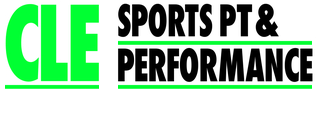Links to exercises can be found here. In this challenging time of COVID-19 precautions, here’s a home-based 4-week strength training program for runners who no longer have gym access. Research from groups like Montana Running Lab shows that to improve performance, strength training should be done with moderate to heavy resistance (ex: 60-80% of a 1 rep max) for 3-6 … Read More
Reaching Peak Performance [ARTICLE SUMMARY]
I’m loving the early edition of this paper in the Journal of Orthopaedic & Sports Physical Therapy. There’s no doubt that athletes need to train hard to reach peak performance. But how hard? And how fast should that training ramp up? Thanks to Tim Gabbett for this excellent commentary. In my very humble opinion, clinicians, coaches, and athletes all need … Read More
Running form: what’s ideal? [INFOGRAPHIC]
I get a lot of questions on “how to run.” This infographic outlines general guidelines, but please note that there is no perfect method for running. Use these as general suggestions, but keep in mind that everyone’s body is different. For example, some colleges did not recruit Michael Johnson due to his unconventional sprinting form. If you don’t have an … Read More
RECOVERY: the biggest buzzword in sports science right now
As athletes continue to push the boundaries of their bodies with training, recovery becomes even more important. Why? To reduce fatigue and enhance athletic performance. In theory, if you can recover faster, you can train harder (or more often). But, unfortunately recovery is complex. There’s no one way to do it effectively. This is because it depends on a LOT … Read More
Running cadence – what is it, why should we care, or should we care at all?
Cadence has been “a thing” in the running community for a few years now. Among all things tech-lovers, data junkies, or sports science nerds like myself can track, this is one that can be easily monitored on a Garmin or other GPS device. (And for all of my fellow sports science people, this 2016 study showed that using a … Read More
Do I need sports drinks or electrolytes for my best workout? Part 2 of the importance of the body's fluid balance.
In my last article, I talked about the importance of water and how much to drink. But to be truly “hydrated” means to have a balance of water and chemicals called electrolytes. Electrolytes include: sodium and chloride (aka salt), potassium, calcium, and magnesium. These compounds help control muscle contractions, nerve impulses, blood pH, and water transport in and out … Read More
Dehydration: the simple mistake hurting your training. Part 1 in a series on the importance of the body's fluid balance.
Thirst is our bodies’ signal that we need more fluid. But sometimes there’s a “lag” in this signal – dehydration may happen before we become thirsty. Or we miss these thirst cues because we aren’t aware of them. I made this mistake due to years of conditioning myself to “not need water breaks” when I played college soccer because … Read More
Why my week was #BETTER 7.21.17
It’s Friday! End of another workweek and beginning of another summer weekend… ahhh…. Here’s what made this week #BETTER: Hot. Hot. Hot– Running in these weather conditions is tough. Keep this chart as a reference for pacing your runs. Remember that expecting a PR at this time of year is not realistic…and be safe out there! Which brings me … Read More
Research Roundup: Pain in Marathoners, Second ACL Surgery
Research Roundup- Week of May 2, 2016: What CLE Sports PT is reading to give athletes #BETTER care Prevalence of Musculoskeletal Pain in Marathon Runners Who Compete at the Elite Level. 75% of 199 elite marathoners had running-related pain, most often in the lower leg. Age, experience, and training volume had no effect on the presence of pain in these runners. … Read More
Form Running or Interval Training- Which is More Effective?
Most runners utilize interval training, or alternating short and intense running intervals with recovery periods, to improve speed, endurance, motivation, and even to burn more fat in workouts. Running form drills are another method long utilized by track coaches to improve performance. These drills are increasingly popular among recreational runners to help decrease injuries from technique. But do they really help? This … Read More
- Page 1 of 2
- 1
- 2











You must be logged in to post a comment.